- Home
- Aharon Appelfeld
Laish Page 7
Laish Read online
Page 7
“I don’t know.”
“You don’t know?” she said, and laughter flushed her face.
She was already drunk, but she continued to drink. I had heard from dealers that these women lie and that you mustn’t believe them. But I, for some reason, believed her. She told me that the Prince of Holstein was courting her and had asked for her hand, but that he was a predator. All predators were scum; only the cubs were good.
Suddenly she turned to me and said, “Even this cub will forget Maya.”
“I won’t forget you.”
“Stick out your tongue,” she demanded. “Your tongue is pink. That’s a sign that you’re healthy and that there’s nothing wrong with your heart.”
Then she fell silent. She was cross-eyed, and the powder on her cheeks was cracked. When at last she roused herself, she muttered, “Cubs must be strong, you hear?”
“What?”
“Why don’t you talk?”
I became afraid. “What should I say?”
“You’re not a golem, you’re not made of wood. Say something!”
“You’re very beautiful,” I said.
“That’s not what they say,” she replied with childish pique and a chuckle.
Then she took a compact and lipstick out of her handbag and made up her face. I wanted to say something to her, but I couldn’t come up with a word.
When she finished putting on her makeup, she poured herself another glass of liquor and cursed the Prince of Holstein. Deep lines suddenly appeared on her face, but this didn’t make her look menacing. I wanted to tell her about Sruel’s falcon, which perches on his lap and sleeps there at night, but I wasn’t sure that she would like that. Eventually I said, “Czernowitz is a very pleasant city.” I had heard the word “pleasant” from one of the wagon drivers and found it to my liking.
“What’s so pleasant about this city?” she asked crossly.
“The streets,” I said, for some reason.
“The streets are ugly because the people are ugly, if you know what I mean. In this city, everything’s ugly. They’re all predators. Look at this,” she said, and swiftly pulled up her dress. Her thigh was notched with two pink scars. “And you say that this city is lovely.”
Then she fell silent and it seemed that she was about to leave me. I wanted to take her hand and kiss it, but I was afraid to.
“Maya,” I said.
“What do you want, my dear?” she said distractedly.
“Our Sruel has a falcon.”
“What are you talking about?” she said.
“Every night it lands on his shoulder. They’re good friends.”
“Did you say ‘falcon’?”
“Yes, a falcon.”
“That’s impossible.”
“I swear to you.”
Again she laughed aloud and said, “‘Falcon, falcon from the skies….’ Falcons keep their distance from human beings, don’t they?”
“The falcon really loves Sruel.”
“What are you talking about, my dear?”
“Sruel feeds it scraps of chicken.”
“What a marvel!”
Much later, when she was thoroughly drunk, she grabbed me with both hands and said loudly that she would never forget me.
“Now we’ll slowly take off the cub’s shirt, and we’ll envelop him in lots of love. Cubs need warmth and love. The predators must be driven away without mercy. Isn’t that so?”
We returned very late. The dealers were drunk and lighthearted, and one of them, Salo—about whom I’ll be saying more later—clung to me and kept repeating one sentence, as if striking a stone: “What a magnificent evening, what an unforgettable evening.” The rest of them straggled along the streets, singing old songs, throwing stones into the puddles, and cursing. When we arrived at the wagons, the light of the last watch had already flickered out. I was tired and blurry, and I collapsed like a sack.
14
The following day I didn’t awaken on time and I didn’t rouse the men for prayers. The old men were angry at me, and I made an effort to placate them with something special: I bought some poppy seed cakes and I quickly prepared coffee. At the sight of the coffee and the fresh little cakes their eyes lit up and my negligence was forgiven.
Maya stayed with me. I envisioned her standing next to the wagons, and whenever she was asked what she wanted, she would burst out laughing. Her laughter, a laugh that had become coarsened by the cognac, echoed in my head wherever I turned. But when she mumbled, “My cub has fur that’s as soft as silk,” her voice was like that of a young girl. Eventually, and by now in quite a fog, she forced me to swear that I would never forget her. I swore. She looked at me and was about to say something, but instead of words, vomit spurted from her mouth. She doubled over, sinking to her knees. I helped her clean the carpet, and she asked me not to tell anyone about it. This last request of hers, which was made when she was completely sober, I remember clearly; it was as if she had entrusted me with her innermost secret. Then there was a tumult in the corridor as the dealers emerged from its recesses, and one of them, whose voice I recognized immediately, called out in a wild, licentious way, “Where’s Laishu? Where is he?”
“I’m leaving; I must go,” I said.
“You’re going?” she said, and for a moment her gaze rested on my face.
—
At noon we were told that Ploosh was being held in Czernowitz’s central jail, and that four o’clock was the visiting hour. This violent and frightening man, whose years in jail were indelibly marked on his face and his clothes, who had terrorized people and animals alike, who had killed two people and who knows what other dreadful things he had done—this man now stirred a strange pity within us.
The dealers lost no time. They put a bowl on the ground and cried out in a loud voice, “For the ransom of hostages!” Reb Pinchas refused to act as the herald. He argued that a Jewish murderer falls outside the category of hostages, and because his lot must be with the murderers with whom he will be judged, he deserves no pity. Even the old men were divided on this: some claimed that Ploosh should not be abandoned, while others insisted that one had to ignore him, that a murderer must be thought of as dead.
My teacher, Old Avraham, was one of those who went to visit Ploosh, and I accompanied him. A great crowd had gathered around the jail. The swarthy faces of the peasants revealed both the weariness and the dullness of the oppressed. The four of us—two of our dealers whose names I didn’t know, my teacher, and myself—stood among the crowd of peasants; the longer we stayed there, the more something of their heavy muteness clung to us.
When the doors would still not open, a groundswell of anger arose from the peasants. The sentries, who stood in the watchtowers, countered with a wild roar, and the peasants fell silent. When at last they opened the doors, everyone pressed inside into a narrow yard that had tall, narrow railings. One had to wait in line to get in, but, as usual, the strong ones pushed ahead and they got in first. It was already night when we entered the visitors’ room.
“Talk,” said the guard. “You’ve got twenty minutes.”
My teacher turned to him. “How are you? We’ve brought you a few necessities.” The dealers laid the two packages we had brought with us on the counter. The guard checked them and said, “Take this one.”
“Well done,” said Ploosh, lowering his head.
“How is it here?” asked my teacher.
“Not that bad.” The familiar brutal smile spread across Ploosh’s face. He did not look wretched.
“Are there other Jews here?” my teacher asked.
“No,” Ploosh replied, and his smile broadened.
“And what do you do?”
“I clean the yard.”
“Do you need anything?”
“No.”
“We’ll be moving on soon.”
“Where to?”
“Who knows?”
“And who’s going to drive my wagon?”
“Sruel.”
Ploosh’s eyes immediately narrowed, as if he were about to grab a bull by its horns.
“He has no idea how to treat the horses!” he said with barely restrained fury.
“How do you mean?”
“He doesn’t treat them right!”
“We’ll see that he does.” My teacher tried to soothe him.
“I wouldn’t put the horses into his care. They are good horses and have to be taken care of right. He hasn’t a clue about horses. Understand?” Ploosh’s poorly contained anger flushed onto his face, and it was clear that this man had not a single living soul in the world apart from the two horses whom he humbled with a mighty hand. Now even they had been taken from him and given over to a man whom he hated with every fiber of his being.
“You can’t hand such good horses over to that scum!” he roared. On these kinds of visits, my teacher would usually try to whisper some words of Torah in the prisoner’s ear, but when he saw Ploosh’s fury, he could not.
“May God have mercy,” he said, without looking Ploosh in the eye.
“I don’t know what they want of me,” said Ploosh, and covered his face with both his hands, as if he had forgotten the reason he was sitting here.
“May God have mercy,” my teacher repeated.
On hearing these familiar words, the smile crept back onto Ploosh’s face. It was that same wild smile of his, though now somewhat pursed.
“We must be going,” said my teacher.
“Go in peace,” said Ploosh, and seemed happy that this blessing had rolled off his tongue.
—
The roads were already dark, and we made our way slowly, as if we had been rebuked. Ploosh’s fury thundered in our ears for a long time. When we approached the wagons, one of the dealers asked my teacher, “Why does he hate Sruel?”
“I don’t know,” said my teacher.
“Everyone knows that Sruel is a good man.”
“I don’t know,” he repeated, but it clearly preoccupied him, too.
It was the time of day when the musicians were deeply involved in their playing. They played slowly, and with great devotion. At first I immersed myself in the unassuming sounds made by our flutist. The music lightened my heart, easing my memory of what I saw at the jail. For some reason it seemed to me that from now on my life would be different, that different lights would surround me, and that I would be one of the tall, strong ones, with no fear of what the future held. Should it become necessary, I would go forth to protect those who were weaker, because the Children of Israel were descendants of angels, and it behooved me to act with courage and generosity, as befitted the children of angels. A sensation of being in Eden filled my soul, making me unable to stir until the musicians had ceased playing.
But that night I was tortured by dreams. I dreamed that Ploosh had been freed from his chains and had returned to our wagon. Sruel was unable to escape from his vengeful hands and was badly beaten. No one came to his aid. I also tried to run away, but Ploosh had cunningly surrounded the forecourt with high, narrow railings that he had brought with him from the jail. I awoke from the nightmare happy that I was free and that I would soon light the bonfire, fill the pot, and prepare coffee for the old men.
15
My life has changed beyond all recognition. I feel joined to Maya, and this bond fills me with hidden joy. It seems to me that the errands I run are for her sake alone, and that someday I will be able to bring her many kinds of cosmetics and lots of silk stockings—but how will I find her? The dealers are intoxicated with their commerce. They transport contraband in broad wagons that are hitched to three Belgian horses. Money is passed from hand to hand, and in the evening it is sewn into coats. The old men see this and weep with rage. But their anger makes no difference. It cannot pull the dealers out of their feverishness. The musicians, too, are awake until the small hours, and the way they play together has greatly improved. Jews in Czernowitz are generous and fill the bowl with banknotes and coins. Reb Pinchas has come to an understanding with the dealers; now he appears twice a day and occasionally does a midnight performance as well. The story of Joseph being sold into slavery is a huge success. The big yard is surrounded by a fence, and tickets are sold at the entrance. Reb Pinchas is now assisted by two actors, and the large expanse looks like a real theater. Blind Menachem plays the patriarch Jacob, sitting on a large chair and silently taking in all the bad news. Lame Yekutiel is lowered into a pit, which has been dug especially for the performance. His voice, which rises from inside the pit, is strong and shocking. Although he is begging for his life, his pleadings are neither tearful nor wheedling; they have the force of a strong man who has been taken captive and is trying to free himself from his fetters.
After midnight, when the commotion has subsided, the old men get to their feet and shout, “There is no forgiveness for money-grubbers who delay our pilgrimage to the Land of Israel. The God of Israel will not forgive you for worshipping silver and gold, or for delaying our souls’ redemption and twisting the straight into the winding. The God of Israel, who knows a man’s heart and his innermost thoughts, He and no other will bring you to trial.” As they say this, the old men are like the ancient priests who were taken captive and exiled.
I hoard every penny so that I can go back to visit Maya, but my savings are not sufficient. Last night I stole from Blind Menachem’s coat. I did it quickly, dexterously, and he did not feel it. The following day he sat and wept like a child. I swore to myself that I would never steal from him again and that I would return what I did steal sevenfold. But even this theft was not enough for me. I continued to steal until I had the necessary sum.
As darkness fell, I reached the nightclub.
“Who would you like tonight?” said the woman at the counter.
“I’d like Maya.”
“Maya no longer works for us.”
“Why?” I said loudly, which must have astonished her.
“Because she didn’t serve our customers as she should have, and every night she would cause a scandal.”
“So she isn’t here?”
“Not with us. We can live without her. A woman who doesn’t know how to guard her honor, a woman who vomits, this sort of woman does not deserve to be here with us.”
To me it seemed that those were not words that issued from her mouth so much as sparks of fire, and that she was using those sparks to lash Maya’s back.
“She didn’t vomit,” I said, and I was happy I said it.
“That’s a lie; she vomits every night. A woman who doesn’t know how to hold her liquor shouldn’t come here. We don’t force any woman to come here. Certainly, a person may have a drink or two, and even get a little tipsy, but vomiting—that’s disgusting! It’s not professional.”
“So she won’t be here anymore?” I asked loudly, and it sounded foolish even to me.
“She won’t cross this threshold while I’m here.”
“That’s a pity,” I said.
“We have, thank God, interesting women here, women who have studied at high school.”
I wanted to say something to her, but the words stuck in my throat.
“I don’t know what a young man sees in her,” she threw after me.
—
It was night, and a damp mist trawled along the city’s broad sidewalks. People streamed downtown and I was swept along with them, as though I had been condemned to an aimless life.
When I returned to the wagons, my teacher, Old Avraham, came over to me. He was not harsh with me this time. He spoke of what was happening to the old men who had been placed in the hands of the dealers and the wagon drivers, and of their steadily dwindling hopes. There was neither anger nor resentment in his voice, only a quiet anguish for which there could be no consolation. I wanted to offer some comfort, but in my heart I knew that empty consolation, like a vain oath, is forbidden.
That night, dreadful screams rent the darkness and awakened people from their sleep with a start. The screams were short and
sharp, and they came from the direction of the river. We were certain that they were the despairing screams of Mamshe, pleading for help. The entire camp was aghast. Some of the dealers lit their lanterns and plunged into the reeds. The reeds looked higher now than they did in the daylight.
“Mamshe, don’t be afraid,” they called from every quarter. Some of the men beat a path to the banks of the Prut, waving their lanterns and shouting, “Where are you, Mamshe? We won’t do anything to you. You have nothing to fear. We won’t imprison you in the cage.”
For a long time they shouted in a variety of different voices, but no answer came. The night was quiet and a fine mist hovered above the waters of the Prut.
Then a fight broke out between two of the wagon drivers, and shouts and threats could be heard.
“I’ll cut you up into little pieces, like a butcher!” one of the men shouted in a voice that made the camp shudder. “Exactly like a butcher!”
Hearing these shouts and the threats, the old men came running and stood between the opponents.
“It is forbidden to speak like this! Jews don’t speak like this!” They would not move until there was calm and the warring factions had returned to their wagons.
It was hard for me to fall asleep that night. I decided to return the money I stole from Blind Menachem. I doubled the amount, and I shoved it inside his pocket. The following day the sockets of his blind eyes lit up. He was as happy as a child and told everyone that the money had been returned to him. Then he called out in sheer joy, “The Children of Israel are the sons of angels! Let no one fault them.”
16
In Czernowitz we were joined by two elderly men. No one was happy about it, not even our herald, Reb Pinchas, who seemed to take fresh delight in every new acquaintance. They procured two places on one of the wagons and showed the committee members that they had enough cash for the expenses of the journey. Our old men warned them straightaway that there were people who stole during the night and that they should sew their money into their coats. They were tall, elderly men and, as it happened, they were cousins. Their long coats looked well on them, and their expressions spoke of honesty and calmness of mind.

 Long Summer Nights
Long Summer Nights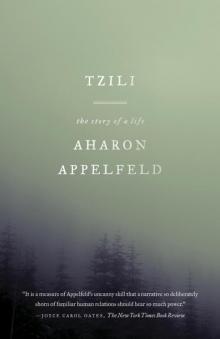 Tzili
Tzili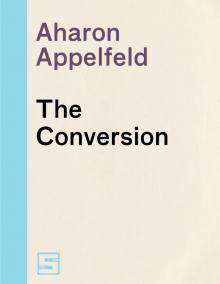 The Conversion
The Conversion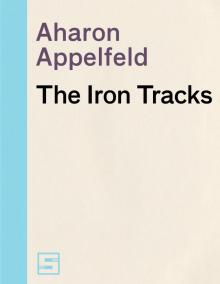 The Iron Tracks
The Iron Tracks All Whom I Have Loved
All Whom I Have Loved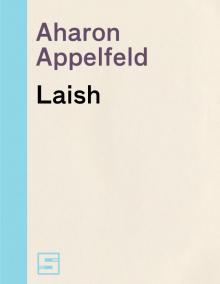 Laish
Laish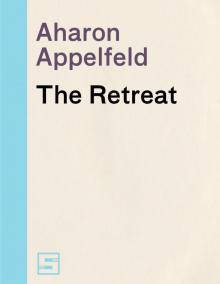 The Retreat
The Retreat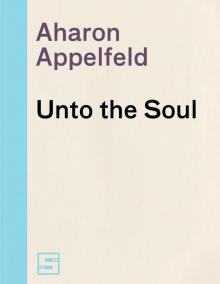 Unto the Soul
Unto the Soul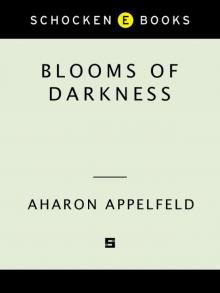 Blooms of Darkness
Blooms of Darkness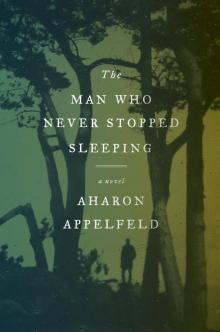 The Man Who Never Stopped Sleeping
The Man Who Never Stopped Sleeping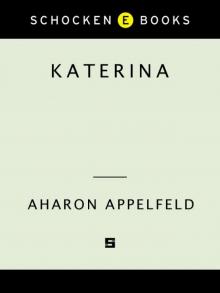 Katerina
Katerina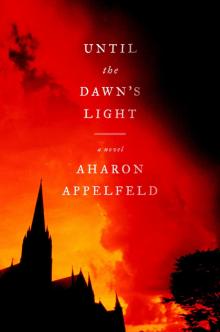 Until the Dawn's Light
Until the Dawn's Light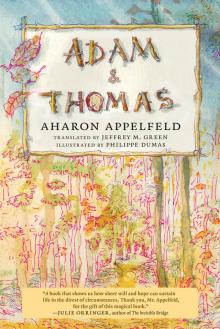 Adam and Thomas
Adam and Thomas Suddenly, Love
Suddenly, Love